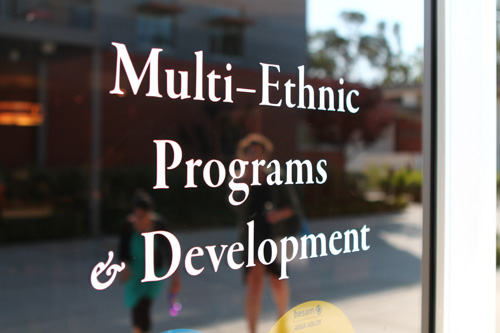As part of a larger plan to improve diversity and inclusion on campus, Multi-Ethnic Programming and Development will transition the role of their department from planning diversity events on campus to directly supporting students through affinity groups.
A Student Liason
In March, Alicia Andre, assistant director of MEPD, and Tamra Malone, director of diversity initiatives, approached the Student Government Association to ask the senators to consider granting the department $10,000 dollars. These funds, in addition to the approximately $19,000 they receive annually through SGA from the student fee, would allow the department to hire a student coordinator for each of the eight affinity groups, as well as have funds to purchase supplies for group meetings. Though SGA senators expressed concern when SGA senior vice president Drew Mattocks presented the official proposal, the senate passed the funding.
“[SGA is] helping basically employ a student…to serve as a liaison for these groups so that the administrative part, again, doesn’t have to fall…in between my daily job but if this is someone’s daily job it can be consistent—emails can be consistent, communication, marketing, questions, whatever, can be directed directly to a student,” Malone said.
Personal and Individual Connection
Previously, MEPD worked on the planning of diversity events on campus such as Gospel Fest, SCORR and Sola Soul. MEPD will pass the responsibility of planning these events to Student Programming and Activities. This would allow the events to appeal best to the needs of students and allow MEPD to focus on supporting students on a more personal and individual level to help increase their sense of belonging at Biola.
The affinity groups present an opportunity for students to meet with other students and discuss their racial identity and similar matters. Currently, groups consist of black women, black men, Asian students and Latina women titled Chocolate Chat, Iron Sharpens Iron, Taro Talk and Latina Connect, respectively. A board of advisors consisting of Biola staff and faculty oversees each group and can help provide advice for students or facilitate meetings.
Next year, the department has the opportunity to open more groups, such as groups for minority men, biracial students or white students. Sophomore anthropology major and MEPD events coordinator Caroline Warner participated in an affinity group during her freshman year, though the group disbanded shortly afterward as the student leaders in the club graduated.
A Space for Exploration
“I was in an affinity group for white students…which is basically a place where you can process your racial identity and, especially for white students, it’s a place where we can learn more about race and diversity and what our place is at the table and in the conversation so it’s really wonderful,” Warner said. “That’s the biggest thing about an affinity group, it provides the space for you to be you and for you to explore who you are.”
Freshman cinema and media arts major Emily Inaba was invited to Taro Talk and despite a schedule conflict that prevented her from attending meetings, she understands the importance of these groups.
“I think especially just [in] America…assimilation is a huge thing so a lot of us, especially being Asian, we’ve lost a lot of what it means to be Asian and Asian American,” Inaba said. “I think it’s just Biola has a wake up call with the swastika event and then just to realize that racism isn’t just hating race but it’s also not knowing your own race, so colorblind racism. I think these groups are important in figuring out who we are.”
As MEPD seeks to move forward with these changes for next year, they also look to rename the department to better encompass their new specialized purpose and encourage students to feel welcome. Malone explained that she wants the name to avoid the stigma that diversity programs are for everyone except white students, and instead cause students from all backgrounds to feel included.







